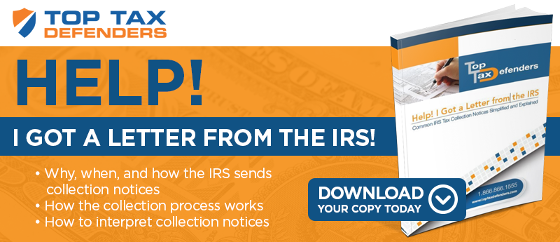
Getting a letter from the IRS can be a nerve-wracking experience for most taxpayers. This can be even more unnerving when the letter says that tax information is incorrectly reported on a previous return. That's exactly what occurs when a person receives a CP-2000 notice from the Internal Revenue Service.
However, the notice itself may not spell bad news. In some cases, taxpayers may even receive a tax break when they read the letter. Getting an understanding of what a CP-2000 notice is can help to put taxpayers' minds at ease if they should find one in their mailbox.
What is a CP-2000 Notice?
In short, a CP-2000 notice is a written letter that the IRS sends out when the information on a tax return is incorrect or incompatible with the same information on other sources. For example, you might complete your tax return and enter your Social Security number incorrectly. After the IRS receives the tax information for a small business in the form of a w2 form with a different Social Security number listed as yours, the agency may find that your original information was incorrect and send you a CP-2000 notice.
What can be frustrating for taxpayers is that the IRS may not send you a CP-2000 notice for several months or, in rare instances, a few years. This usually happens in cases when taxpayers file their returns by mail, because the agency has to wait until the information is received and processed before it can compare it to that from other sources. Taxpayers who file electronically, however, generally receive notice of these discrepancies in a few days.
Will Your Taxes Go Up If You Get a CP-2000 Notice?
Whether your taxes go up or down after you get a CP-2000 notice depends on your situation. If the updated information includes an additional dependent or a missed tax credit, such as the tax credit for higher education, then your taxes may actually decrease, causing your taxes to go down. On the other hand, if you mistake information included a disallowed tax deduction or if you forgot to include additional income, you'll likely have a larger tax bill. If your taxes are higher than originally reported, you may have to pay interest on the unpaid amount.
What to Do When You Get a CP-2000 Notice
For some taxpayers, a CP-2000 notice is simply a written statement that requires no action at all. However, most individuals will need to take a few steps upon receiving the notice. Generally, taxpayers who receive an adjusted tax bill must sign and return a form acknowledging that they received the form and are agreeing to the updated total.
Taxpayers who disagree with the agency's findings or who need to contest the information discrepancy will need either to call the IRS using the listed phone number or write to provide documentation of their pertinent information. The IRS generally lists the necessary steps on the CP-2000 notice itself.
A CP-2000 notice is the IRS's way of alerting you to incorrect or improperly reported information on your tax return. If you follow the steps listed on your notice, you can correct your return and comply with the IRS regulations in your case.




